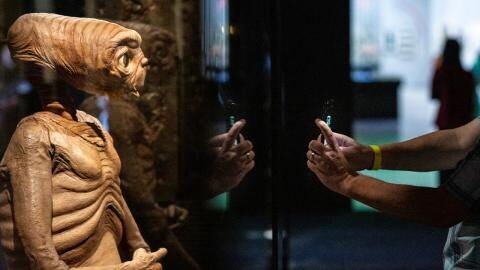Space aliens, 'just' a few million kilometres away from us? This is the hypothesis raised in a study published on 14 December in the scientific journal Nature. The researchers put forward this hypothesis after analysing the chemical composition of clouds in the atmosphere of Venus.
Discover our latest podcast
The confounding presence of Phosphine
When several British scientists turned their telescopes towards the Evening star, they found that its toxic, hyper-acidic clouds also contained a specific gas: Phosphine. And as they explain in the study, the presence of this gas is quite simply inexplicable!
Indeed, by drawing an analogy with our own planet, where this gas is present in abundance as a by-product of biological activity, the researchers were able to raise the possibility that Venus might well harbour life. More precisely, it would be a form of life sheltered within its depth, away from the constant acid rain and hellish temperatures on the surface.
These lifeforms would not be humanoid
But hold your horses. If there is life (and do remember, this is only a hypothesis), it may not resemble that which you've seen in science fiction films. There will be no Venus Attacks on the news any time soon: it will be life, yes, but only as tiny, sparse microbes.
Still, let's not kill the mood too much. Microscopic or not, the discovery of any sort of extraterrestrial life so close to Earth would have a revolutionary impact on our perception of the universe, and humanity's place in it.
For Clara Sous-Silva, co-author of the study, the presence of Phosphine is 'an extraordinary discovery.'
We may not even know how extraordinary it is until we return to Venus.















